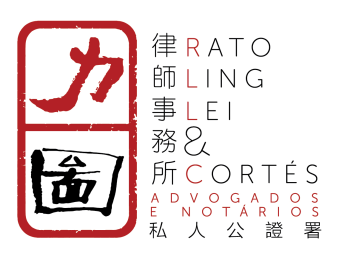Introduction
Macau's rental housing market has always been the subject of lively discussion among residents and legislators alike. Residents are critical of the legal system, which they deem unfair and not protective of their rights. However, problems do not always arise from the law, but often from market dynamics.
Macau's legal regime for rental housing is set out in the Civil Code, but it has not always been that way. Before 1999, there was independent legislation, similar to that in place in Portugal. In 1999 the legislature decided to unify the rental regimes for moveable and immoveable properties. Articles 969 and following of the Civil Code are dedicated to renting in general, with rental housing ruled by Articles 1029 and following.
A major concern of the parties to a tenancy agreement is its term or duration. Tenants expect some stability, while landlords seek to maximise their profits.
In recent years, as a result of the bubble in the real estate market, landlords have often preferred short-term tenancy agreements, due to their (realistic) expectations that they could demand a higher rental fee for the same property the following year.
Real estate agents are also seeking to exploit this trend. Agents are interested in having properties constantly on the market, collecting commission each time they broker a rental agreement.
According to the Civil Code, the parties to a tenancy agreement have the freedom to establish its term, as long as this is not over 30 years. Where the parties set no term, this will be deemed to be one year. On expiry of the term, the agreement will be renewed automatically for the same term, unless the parties oppose renewal.
However, landlords are not entitled to oppose renewal for the first two years of an agreement. This rule leads to some misinterpretation regarding agreement terms: some say that the minimum term of rental agreements is two years, due to the preclusion of the landlord's right to oppose renewal for the first two years. However, this is not the case, as an agreement with a nine-month term would be legal - the only limitation being that landlords cannot terminate the agreement for the first two years.
The tenant can always oppose the agreement's renewal, as long as notice is served on the landlord. Notice varies from 30 days to 180 days, depending on the agreement's term. A 90-day notice period is required to terminate the agreement.
Another issue relates to the currency of the rent. Macau law establishes that rent must be defined in patacas. However, this seldom happens, leading tenants to pay rent in Hong Kong dollars, the currency most commonly defined in the agreement. Even if such an agreement is not in accordance with the law, tenants are always entitled to pay the rent in patacas, provided that the rent amount is converted legally.
Rent increases also present issues. According to the Civil Code, rent may be increased in accordance with the conditions prescribed in the agreement or a subsequent agreement executed between the parties. The law also provides for the possibility to increase rent due to extraordinary maintenance works performed by the landlord. The landlord must inform the tenant of the new rent at least 30 days before it becomes due. The new amount will be binding unless the tenant opposes it within 15 days on any of the grounds provided for by law and suggests an alternative amount. Otherwise, the tenant is entitled to terminate the agreement.
The lack of restrictions in place to prevent landlords from increasing rent has led to situations where rent has been increased by 50% or more, leaving tenants with no alternative other than to refuse such rent and search for a new place to live.
Without prejudice to contractual freedom and the right of parties to freely establish contractual conditions, there should arguably be a rule to cap rent increases (eg, according to the rate of inflation), in order to allow tenants to keep living in the same place without having to move each year.
The legislature is working on the matter and a draft law is expected to be presented to the Legislative Assembly in the hope that it will meet tenants' expectations.
For further information on this topic please contact Pedro Cortés or Marta Mourão at Rato Ling Vong Lei & Cortés Advogados by telephone (+853 2856 2322) or email ([email protected] or[email protected]). The Rato Ling Vong Lei & Cortés Advogados website can be accessed atwww.lektou.com.
This article was first published by the International Law Office, a premium online legal update service for major companies and law firms worldwide. Register for a free subscription.




